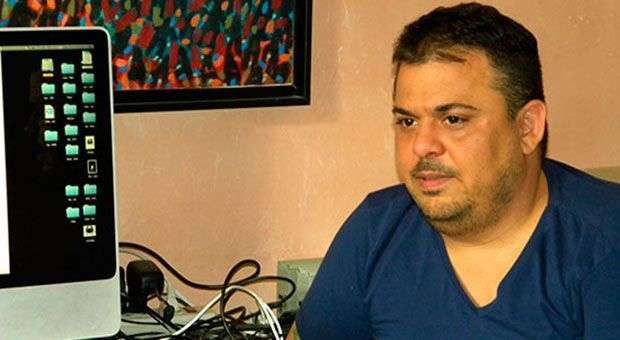Gibara, known as the White Village, captivated Humberto Solas since he shot Lucia and years later he turned it into the capital for Low-budget Cinema. This village also caught the attention of Lester Hamlet, the current director of the Low-budget Film Festival, who assumed the challenge of continuing the legacy of that late filmmaker. When the festival seemed to be lost along with his creator, the festival returns to Gibara until April 27 with intense days between harmony and art.
Despite the lack of financing, this 11th edition had great reception, “This has been a great motivation to go on with the event because it wouldn’t be fair that the audience and producers don’t enjoy this cinema, these messages and different means of doing things from several places”, Hamlet told OnCuba.
Do you have any other motivations for continuing Solas’ sociocultural utopia?
Maintaining Humberto’s legacy, continuing with his work is, of course, one of my motivations because that’s something i owe him. I feel I have the responsibility of offering an opportunity to dialogue, exchange, and screen films for the people that rely on the festival and trust in it. I defend this kind of cinema above anything, a cinema that is made in parallel with the cinematographic industry, but without too many resources and with great strength and artistic values as well as this festival. The people in Gibara are another motivation for me. This festival has also trained its audience, and has increased the preference of Gibara’s inhabitants for films. They debate about cinema, films, just as people discuss about baseball at Havana’s Central Park. That’s why I would like to maintain cinema in Gibara not two wait for two years for the Festival. Even though our facilities are in Havana, we aim at keeping Poor Cinema in Gibara.
Rumor has it that there are going to be changes in the structure of the Cuban Film Institute (ICAIC by its acronym in Spanish). What’s the future of the Festival within the renewed institution?
I believe that the Low-budget Film Festival as well as the Santiago Alvarez Documentary Festival are, in a certain way, debts by ICAIC with its great teachers and its legacy. I think ICAIC must maintain this doors open as well as ICAIC’s Young Sample, because they are essential for spreading national and international cinema. The festival is vital for the Cuban cinema and for Gibara’s inhabitants, who feel the festival as theirs, thus contributing with preserving the event and is definitely one of its keys for success. In my opinion, I would prefer ICAIC focuses on organizing, promoting and supporting these festivals than in the production of films.
What are the highlights of this edition?
This edition pays homage to actress Luisa Maria Jimenez, who recently recovered from a brain stroke. She is one of the greatest Cuban actresses, the last one to enter the world of Solas’ characters, in his film Barrio Cuba. Her performance in this film assured her the First Prize in the category of Female Performance at the New Latin American Film Festival, along with other international awards. Her image stars the poster of the event in the form of a mermaid, designed on the basis of one of her pictures by a Spanish photographer, which will be exhibited in Gibara as one of the activities of the event.
Another of the goals of the festival for this year is to rescue Gibara’s culinary culture, to make it visible as part of the popular culture of the city and of the importance of the city for its inhabitants. The White Village has been recognized about 20 typical dishes. Besides, the Culinary Association of the municipality, and other collaborators, have arranged several activities allegorical to its customs. Sport activities have also been prepared taking into account its role in the social shaping of individuals, with the purpose of linking these manifestations to the cinema and actively involve Gibara’s inhabitants in the festival.
The event will also honor Jorge Molina with a retrospective of his audiovisual work, which includes the premiere of Molina’s borealis. Molina will once again shoot a short film during the festival. This year’s event will premiere some works shot during the last edition as part of a sample called Gibaras. The participants at the event will also homage song writer and singer Santiago Feliu with an exhibit of photographs by Ivan Socca and the screening of a documentary I produced on this musician, which is entitled Descerebrandose.
The National Literature Award, Reynaldo Gonzalez will chair the jury, made up of Eugenio Marrón, renowned intellectual from the eastern province of Holguin; young producer Luis Ernesto Doñas; art director Vivian del Valle; Jorge Molina and Luisa María Jiménez along with professor from the International Cinema and Television School of San Antonio de los Baños.
This year´s festival will mostly display documentaries, as this genre is experiencing a vertiginous boom given that it has been the ideal vehicle for producers to express their daily concerns.










